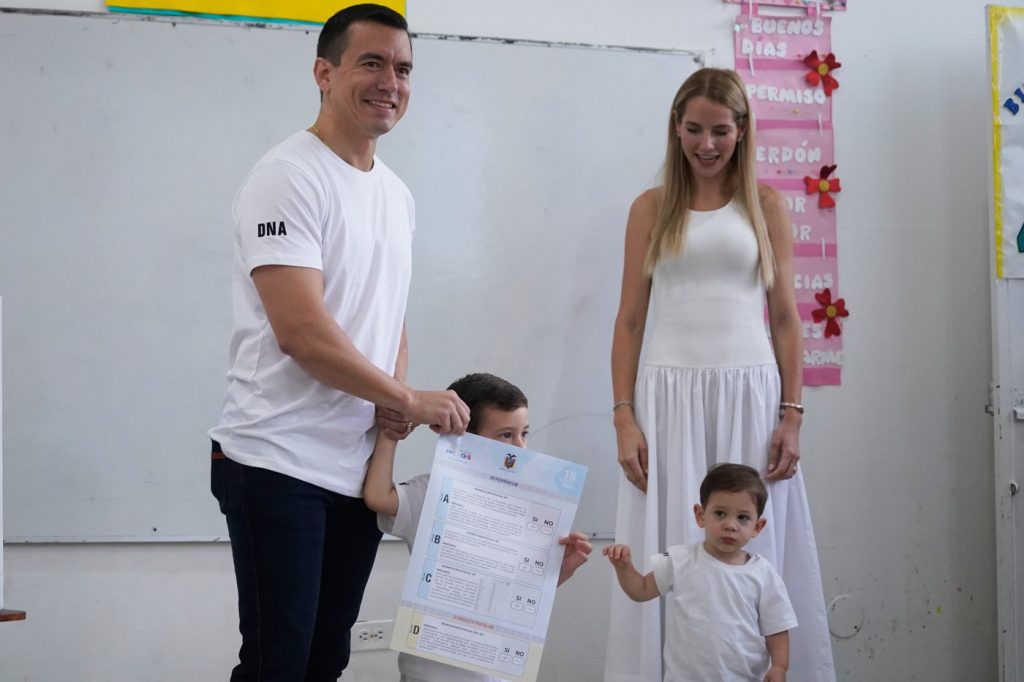On November 16, 2025, Ecuadorians participated in a crucial referendum that posed significant questions regarding the country's future governance and international alignment. The referendum featured four key components, including an amendment to the national constitution that would permit the establishment of foreign military bases within Ecuador. This proposal is part of a larger narrative surrounding national security, particularly as Ecuador grapples with escalating violent crime associated with drug trafficking organizations based in neighboring Colombia and Peru.
The violent landscape in Ecuador has become increasingly alarming, with drug trafficking gangs reportedly targeting political figures, including presidential candidates and journalists, amid fierce struggles for control over strategic ports and coastal territories. President Daniel Noboa, who supports a stringent approach to combatting crime, has been a central figure advocating for the referendum. Recently, he engaged in discussions with U.S. officials to strengthen regional security and migration cooperation. Additionally, Noboa provided U.S. Homeland Security Secretary Kristi Noem with a tour of a military facility that could potentially accommodate U.S. troops.
Noboa emphasizes that international collaboration is crucial to dismantling drug-trafficking networks, describing them as transnational criminal organizations. He believes that the current constitution, in place since Ecuador returned to democracy in 1979, inadequately equips the government to handle these challenges. Therefore, he proposes a “rebuilding” of the constitution to provide more robust tools for law enforcement.
The referendum includes a proposal to initiate the establishment of a constituent assembly tasked with drafting a new constitution. Should the voters approve this measure, an election would take place the following year to select delegates for the assembly. Noboa argues that the updated constitution should enforce stricter punitive measures against criminals and implement more effective border control policies.
However, not everyone supports Noboa’s vision. Critics argue that merely rewriting the constitution will not remedy deeper societal issues, such as insecurity, healthcare deficiencies, and inadequate educational services. Furthermore, there are concerns that a new constitution might undermine legislative and judicial supervision of the executive branch, potentially leading to an increase in authoritarian governance.
Additionally, the referendum sought public opinion on reducing public funding for political parties and cutting the number of legislators in the National Assembly from 151 to 73 representatives. While Noboa contends these actions are necessary to decrease government expenditures, opponents caution that these measures might marginalize political representation, particularly affecting lower-income communities where financial resources for campaigning are already limited.
Voting is compulsory for Ecuadorian citizens under the age of 64, with nearly 14 million registered voters eligible to participate in this significant democratic exercise. The outcomes of the referendum are expected to have a profound impact on Ecuador's governance and its stance on international military cooperation, particularly in the context of ongoing issues with crime and safety.










